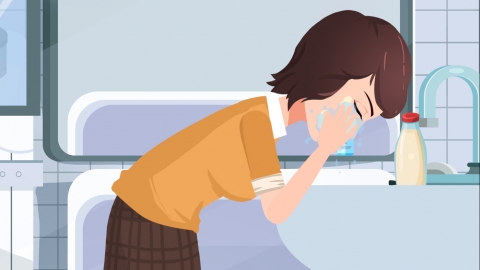Is there a risk of contracting brain-eating amoeba from washing your face with tap water?
The term "brain-eating amoeba" usually refers to amoebas. Generally speaking, if the water from the tap comes directly from a river without treatment, using this water to wash your face might expose you to amoebas. However, if the tap water has been treated, using it to wash your face typically does not pose a risk of amoebas. The specific analysis is as follows:

If the water from the tap comes directly from a river and is untreated, washing your face with it may lead to contact with amoebas. Natural rivers have complex environments, and river water may contain large amounts of organic matter, providing suitable conditions for the survival and reproduction of amoebas. Untreated river water does not undergo purification processes such as disinfection and filtration, making it unable to effectively remove pathogens in the water. When the water flows into the nasal cavity during face washing, amoebas can enter the body through the nasal mucosa, potentially causing infection and posing a threat to health.
However, if the water from the tap has been treated, using it to wash your face generally does not pose a risk of amoebas. Modern water treatment processes are highly effective. Raw water first undergoes steps such as sedimentation and filtration to remove suspended solids, silt, and other impurities in the water. Subsequently, strict disinfection treatments are carried out, such as using disinfectants like chlorine or chlorine dioxide, or employing technologies like ultraviolet sterilization. These measures can effectively kill various pathogens, including amoebas. Moreover, during the transportation of treated water to households, the water supply system also implements corresponding measures to ensure water quality safety. Therefore, using treated tap water to wash your face generally does not pose a risk of exposure to amoebas.
To better ensure water safety in daily life, it is important to understand the source and treatment status of your household water supply. If the water quality is uncertain, try to avoid using untreated water in contact with the nasal cavity; regularly clean components such as the faucet filter screen at home to prevent microbial growth. If there are concerns about water quality, consider using bottled water for face washing or boiling the water before use.







